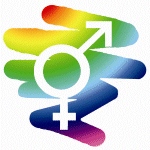Tuesday, October 7, 2008
Our lens through an anti-oppressive framework
We will be exploring the transgender experience from within an anti-oppressive framework. This is a broad paradigm that seeks to combat all forms of discrimination through the ways in which they are practiced. It is a way of conceptualizing oppression that gives us a brief inkling as to why some people believe the way they do. It is the basis for challenging inequality by fully identifying what drives people to hold prejudices. It reminds us that society enforces a lot of our beliefs and this way of thinking can help us to understand how something can become a norm and asks how we can best go about explaining, and challenging oppression.Under the anti-oppressive framework, we see discrimination toward the transgender individual on three levels. On a personal level, they face prejudice, harassment and are often the targets of violent hate crimes. For example, “transgender individuals living in America today have a one in 12 chance of being murdered. In contrast, the average person has about a one in 18,000 chance of being murdered”. (http://www.hrc.org/issues/1508.htm)On a structural level, the media perpetuates the view of transgenders as being unequal and inferior in today’s society. For example, in the movie, “Boys Don’t Cry”, 21-year-old Brandon Teena was raped and later killed by two friends after they discovered he was biologically female. Subsequently, the sheriff who referred to Teena as an “it,” did not allow his deputies to arrest the two men. (http://www.youtube.com/watch?v=aOarssJWHhI)What happens is that on a global level, we end up pathologizing the transgender individual and normalizing the idea that they are a less then.We believe that discrimination on a personal and structural level towards transgendered individuals is particularly prominent in a penitentiary setting. The treatment they receive from fellow inmates and staff strongly conflict with their rights as human beings under the constitution. The fundamental point about equality and human rights is that ultimately, it doesn't matter who you are, or how big or small the group you belong to is, your rights have to be protected, and you should be treated equally. This is something that unfortunately needs to be de-constructed under an anti-oppressive framework because somehow the shift has been made to normalize the unequal treatment of smaller, minority groups such as transgender individuals. What we as members of society do not realize is that the problems of inequality in society are very much issues for the entire country and thus will take the effort of all of its citizen’s to transform our thinking and bring about effective change.
Subscribe to:
Post Comments (Atom)

No comments:
Post a Comment